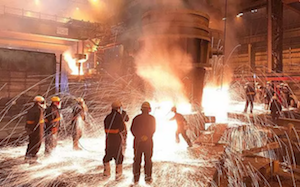 People keep asking me about industrialization with its means and its goals. Where it starts and where it ends. Whether it's a good or a bad thing and of course, what the consequences for our IT profession would be.
People keep asking me about industrialization with its means and its goals. Where it starts and where it ends. Whether it's a good or a bad thing and of course, what the consequences for our IT profession would be.
Well you know, I just have an opinion about it like anyone else so I don't have a clear scientific underpinned definition of true industrialization of IT but I'll give you a few angles to look at it. The first lines on Wikipedia about industrialization start like this: "Industrialization is the period of social and economic change that transforms a human group from an agrarian society into an industrial one. It is a part of a wider modernization process, where social change and economic development are closely related with technological innovation…”
Projected onto my IT-profession, it means that industrialization of IT changes the way we are producing software and delivering IT-services in general from “hand-craftsmanship” towards an automated, outsourced and off-shored production-line. In other words, it changes the delivery model and in some circumstances even the business model dramatically.
Some people might argue that it is mainly about standardization and achieving more efficient, cost-reducing processes to create and sell products or services for a lower price. Well, the answer would be both a yes and a no. Efficiency is just the means but usually not the goal. The money freed by lower-cost production should be re-invested to deliver better and more innovative products or services to the clients. Why? Because unless you want to be the “cheapest-product-seller-of-the-world”, market and competitive distinction will come from continuous innovation of products and services with a decent price to deliver the margin.